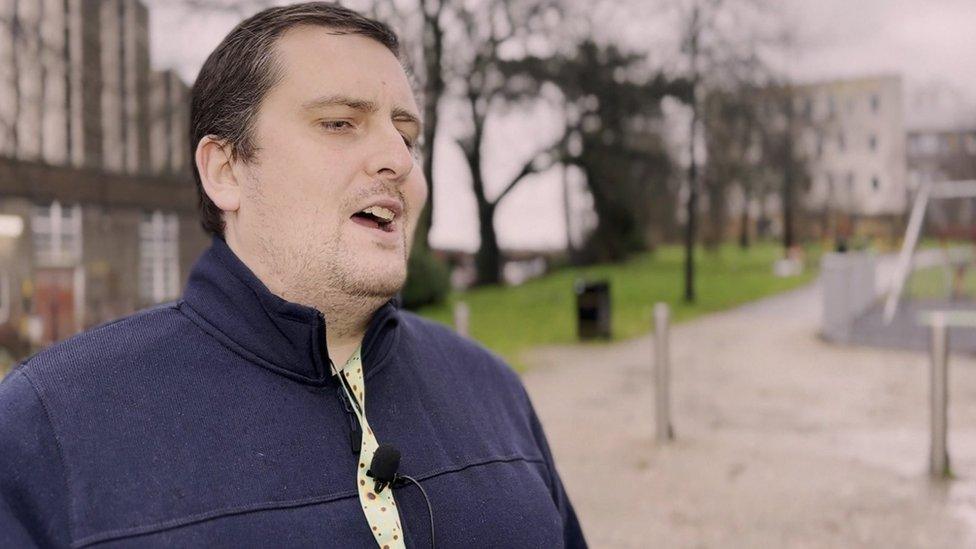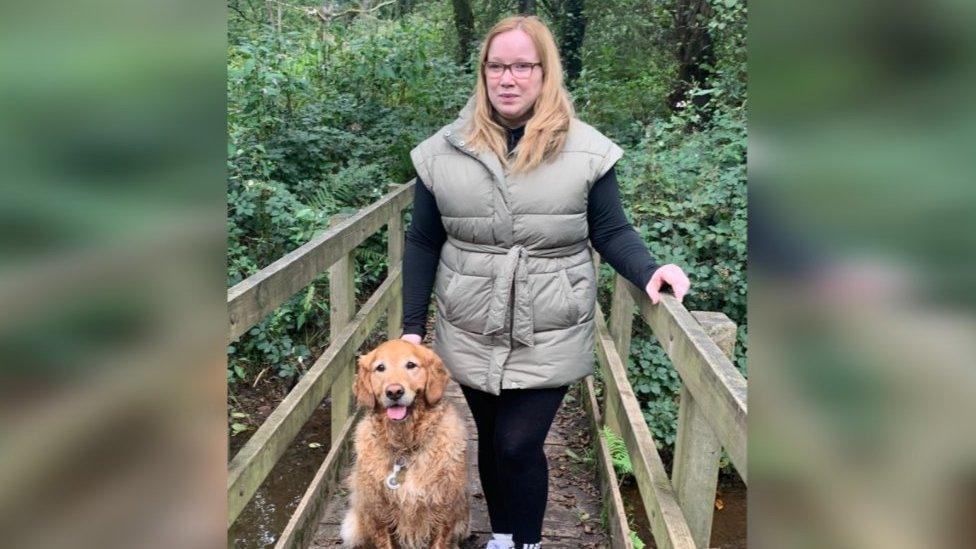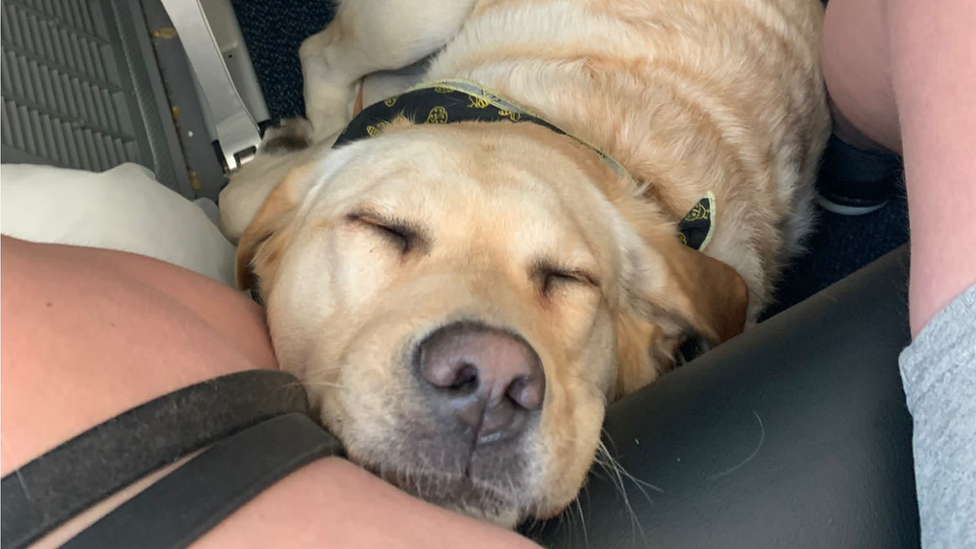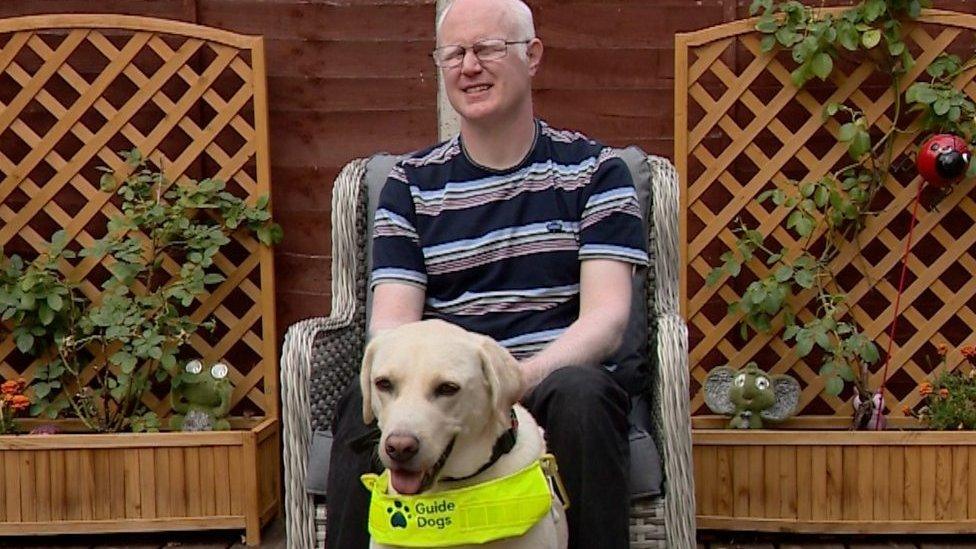Blind man and guide dog refused taxis over 30 times
- Published
'I can't deal with the distress and sense of shame'
A blind man who uses private hire vehicles to get to work says he and his guide dog have been refused trips by some drivers over 30 times.
Stephen Anderson, 32, who works as an organist at a London church, has been filming the incidents involving him and his dog Barney and sending them to Transport for London (TfL).
His actions have so far seen a dozen successful prosecutions.
TfL says it acts against minicab drivers who refuse to take guide dogs.
Under section 170 of the Equality Act, it is a criminal offence for private hire drivers to refuse access to a guide dog and its owner.
'Distress and shame'
Mr Anderson said: "I'm not sure whether I can take another guide dog on in the future simply because I cannot deal with the distress and the sense of shame that comes from people treating me so appallingly.
"Even when I tell them, they will say that it's not a criminal offence because, 'it's my car'."
Mr Anderson hopes private hire companies take action to prevent their drivers from discriminating against blind and partially sighted people.
TfL said it acted "against mini cab drivers who refuse to carry passengers and their guide dogs".
Mr Anderson is the not the first person to stand up for his rights surrounding guide dogs.

Mr Anderson managed to bring dozens of prosecutions after recording and reporting of drivers who refused him
In November, a blind woman and her dog were thrown out of a London Premier Inn in the night after she was accused of lying about her assistance dog.
Angharad Paget-Jones, 29, said she was woken up and asked for "proof" her dog Tudor was a registered guide dog.
She claimed that after providing a Guide Dogs ID booklet, security staff accused Tudor of being a "fake" guide dog.
At the time, Premier Inn said it was urgently investigating the allegations.

Follow BBC London on Facebook, external, Twitter , externaland Instagram, external. Send your story ideas to hellobbclondon@bbc.co.uk, external
- Published10 November 2022

- Published26 August 2022

- Published25 August 2022
